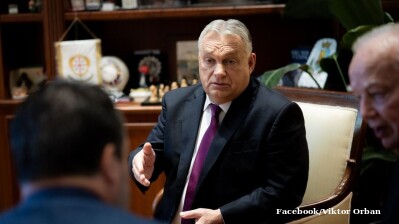The venue for the second European Political Community (EPC) summit was a highly symbolic one. The gathering of 45 European heads of state and government took place at Moldova’s Castle Mimi, close to both the border with war-torn Ukraine and to the part of Moldova controlled by Russia-backed separatists.
The main message to come out of the day’s events was the importance of European solidarity and an overwhelming affirmation of support for two countries on the continent’s Eastern Flank: Moldova and Ukraine.
Set up in May 2022, three months after Russia's invasion of Ukraine, the EPC was intended to unite European leaders from both inside and outside the EU, demonstrating the continent’s unity in the face of Russian aggression.
Thus leaders of EU member states came to Chisinau alongside those from candidates and aspiring candidates and West European states that aren’t part of the EU but are firmly in the Western camp.
“We are 45 countries represented here in Chisinau – it is a powerful symbol. We have a common political will to co-ordinate and co-operate in the field of energy, security and infrastructure. And we will have the opportunity today to discuss all those topics and to try to build more political convergence in order to defend some very important common interests,” said European Council President Charles Michel ahead of the summit.
Security and defence, specifically in light of Russia's aggression in Ukraine, was one of the main issues on the day’s agenda, alongside energy and energy security.
Moldovan President Maia Sandu, the host of the event, said that political leaders had agreed to continue efforts to further integrate Europe through better strategic co-ordination, better connectivity and joint action on energy and climate resilience. Leaders also agreed to step up joint efforts to strengthen the cyber and physical security of Europe's critical infrastructure, including power grids.
Sandu spoke of European unity in her closing remarks. “Today, here, only 20 kilometres from Ukraine, we have brought the continent together to reaffirm our collective and strong resolve to restore peace to Europe,” the Moldovan president said.
“Today, we have shown our strength and unity at a time when the stability of our continent is threatened. We have shown that we are united against the largest military aggression since World War II – and against violations of international law … Our joint actions will bind our European family closer together.”
The war next door
Ukrainian President Volodymyr Zelenskiy was the first foreign leader to arrive at the EPC summit. Ahead of the event he spoke warmly of Moldova’s hospitality to Ukrainian refugees, and stressed that Ukraine stands united with the Moldovan people.
He also raised the more contentious issue of Ukraine’s aspiration to join Nato, calling on members of the Western security alliance to make a clear decision on whether to admit his country.
"In summer, in Vilnius at the Nato summit, a clear invitation from members [to] Ukraine is needed and security guarantees on the way to Nato membership are needed,” Zelenskiy said in his address to the summit.
He also called for Patriot air defence systems and fighter jets to help Ukraine resist Russian forces.
Josep Borrell, the EU foreign policy chief, emphasised the significance of European solidarity with Ukraine in a statement to press at the start of the day, and expressed hope that the presence of numerous leaders close to the border would convey a “strong message of unity”.
Sandu said she had told Zelenskiy that Moldova will “stand by Ukraine as long as it takes. As the president of Moldova, I know that if it were not for the resilience and courage of Ukraine, my own country would be under threat.”
Moldova lies just to the west of Ukraine, and there have been fears since the invasion of Ukraine last year that Moldova could also become embroiled in the war.
Embracing Moldova
The same motivation that led to the creation of the EPC last year also prompted the EU to offer candidate status to both Ukraine and Moldova last summer, as well as allowing existing candidates Albania and North Macedonia to progress towards accession. Following years during which the EU had turned in on itself to deal with internal crises, the invasion and the implied threat to other parts of Eastern Europe have forced European leaders to find ways to integrate more closely with non-members to the east.
The concept was first broached in May 2022 by French President Emmanuel Macron, and the inaugural summit took place at Prague Castle in October.
It was initially greeted with suspicion, especially by EU candidate countries, who feared it could become a substitute for EU accession, but the first summit was deemed a success and a useful forum to discuss important issues informally.
With the first summit held in EU member Czechia, aspiring member Moldova was picked for the second. (The next two will be held in Spain and the UK.)
At a press briefing during the summit, Romanian President Klaus Iohannis talked of the “clear political signals” sent by the meeting, namely the importance of Moldova for the European continent, the continued support for Ukraine and the Ukrainian people, and of the strategic importance of the Eastern Europe and the extended Black Sea region.
“The Republic of Moldova is not alone in facing the challenges it has to face. Romania stands by it, as I have shown, through concrete facts, on every occasion, and I also said this at the opening of the summit when I spoke: Moldova is not alone,” said Iohannis, whose country is the foremost advocate of Moldova’s European integration.
“And as it was shown here, practically unanimously, the other European states also support it. I am convinced that the support of democratic states will continue for the Republic of Moldova, for Ukraine and for the region; increasing security and resilience means increasing security and resilience for all of us, including Romania and Romanians.”
As well as the symbolic impact, Sandu said there had been a “series of tangible results for Moldova”. European Commission President Ursula von der Leyen announced enhanced support for Moldova’s integration ahead of the summit on May 31.
This comprises financial packages for thermal insulation of buildings (€160mn), for modernisation of the railways (€50mn) and for strengthening the military (€40mn), which on top of previous financing since 2021 would add up to €1.6bn.
Sandu also noted on June 1 that Moldova’s European partners have taken action to help Chisinau deal with hybrid threats, while also announcing EU sanctions on oligarchs and criminals trying to destabilise the country.
Crises on the fringes of Europe
The summit brought together politicians from both sides of some of the diplomatic disputes in the region in Chisinau.
Macron, Michel and German Chancellor Olaf Scholz held discussions with President of Azerbaijan Ilham Aliyev and Prime Minister of Armenia Nikol Pashinyan during the summit.
The meeting covered various topics such as connectivity, security, rights, border delineation and the peace treaty. The EU representatives expressed their commitment to assisting and facilitating further advancements towards the normalisation of relations, said a statement from the European Commission. The leaders agreed to reconvene in Brussels on July 21 to continue the dialogue.
After a flare-up of violence in northern Kosovo, a brief meeting also took place between the leaders of Serbia and Kosovo, as both presidents were at the summit. This followed separate meetings with Borrell, Macron and Scholz. However, it appeared the meeting was not productive, as Kosovo’s President Vjosa Osmani told journalists afterwards that her Serbian counterpart Aleksandar Vucic was "not interested in solutions or peace".
News
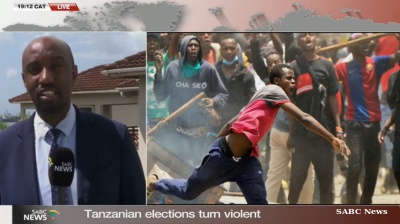
Tanzania election protests trigger curfew; military deployed, internet cut
Demonstrators clashed with security forces in Dar es Salaam, setting a bus and a gas station ablaze, prompting authorities to impose a curfew from 6 p.m. The military was deployed in Dodoma, Zanzibar, and the commercial capital.
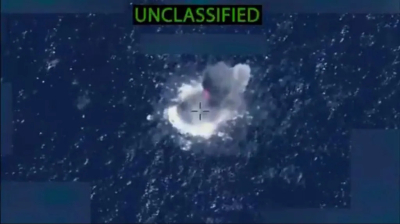
US strikes on drug vessels kill 14 in deadliest day of Trump's narcotics campaign
The US military killed 14 people in strikes on four vessels allegedly transporting narcotics in the eastern Pacific Ocean, marking the deadliest single day since President Donald Trump began his controversial campaign against drug trafficking.
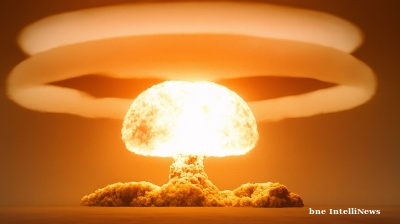
Russia withdraws from Cold War plutonium disposal pact with US
Russian President Vladimir Putin has formally withdrawn from a key arms control agreement with the United States governing the disposal of weapons-grade plutonium, as the few remaining nuclear security accords between the two powers vanish.
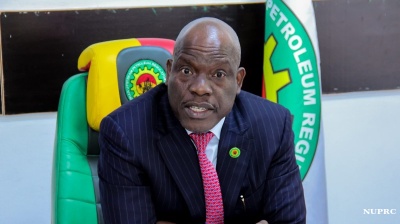
Nigeria’s NUPRC holds exploratory talks with Bank of America on upstream financing
Nigeria's upstream regulator, NUPRC, has held exploratory talks with Bank of America as the country looks to attract new capital and revive crude output, after falling short of its OPEC+ quota.
